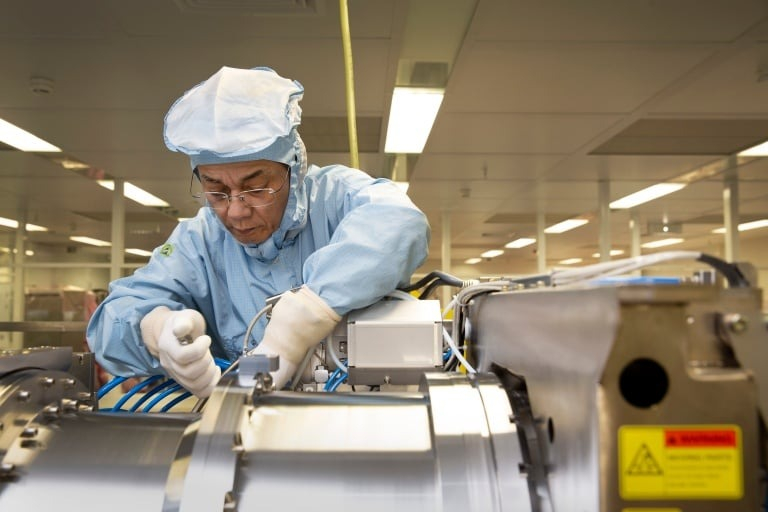ASML, a Dutch company specializing in semiconductor lithography, is currently evaluating the possibility of manufacturing a specialized version of scanners exclusively designed for export to China. These scanners, deliberately modified to comply with the latest US restrictions, could be shipped to China without requiring a special export license.

If the project materializes, Chinese semiconductor companies such as SMIC and Hua Hong would have access to equipment from the Netherlands to continue their chip production processes, particularly for chips manufactured using 28nm and older technologies. However, these specialized scanners would not support the production of more advanced chips.
One of the models being considered for modification is the Twinscan NXT: 1980Di lithographic system. While it is currently the least efficient model in ASML's product lineup, it still offers NA 1.35 optics and provides a resolution of less than 38nm. This resolution is sufficient for the production of 7nm and even more advanced semiconductors. In fact, TSMC used the same scanner, introduced in 2016, for developing their 7nm process.
The deliberate hardware degradation of the scanners to restrict Chinese companies like SMIC from producing chips below 28nm is indeed a possibility. Considering that SMIC generates a significant portion of its revenue from the sale of chips manufactured using technical processes of 28nm and higher, Chinese companies might find it worthwhile to procure such tools from ASML.
It is worth noting that the latest US export restrictions mandate that US companies and individuals acquire special export licenses to supply tools and technologies used in the production of non-planar (3D) transistor chips using 14/16nm and higher process technologies, as well as 3D NAND memory with 128 or more layers and DRAM memory using manufacturing processes up to 18nm. Non-US businesses, including those relying on US components like ASML's Twinscan NXT:1980Di scanners, are also subject to these restrictions.
As per the most recent Dutch export regulations, ASML is required to obtain export licenses to supply Twinscan NXT:2000i scanners to Chinese manufacturers. While ASML has not yet released limited-capability versions of the equipment, it is highly likely that such variants will be manufactured if export restrictions continue to tighten.







